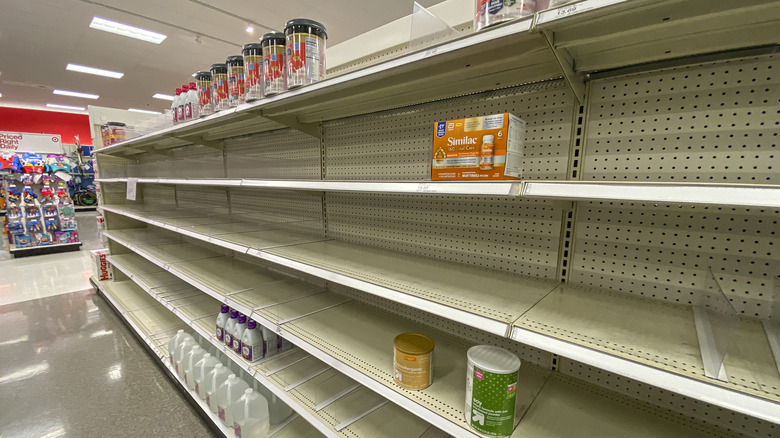The Baby Formula Shortage May Be Over Sooner Than Anticipated. Here's Why
Parents can breathe a little easier. The baby formula shortage rocking the country may be resolved sooner than anticipated.
The formula shortage, which has impacted U.S. parents since November, according to USA Today, was due to a perfect storm of the ongoing supply chain and labor issues that began during the pandemic colliding with a market so niche that only three companies make and distribute infant formula in the U.S., explains Fortune. One of those companies, Abbott Laboratories, shut down their Sturgis, Michigan plant in February after four infants fell ill and two died from ingesting bacteria-tainted formula traced to that location. Fortune also reports that a whistleblower submitted a complaint to the FDA in October 2021 about the Michigan plant, detailing problems like lax cleaning procedures, records falsification, and releasing untested formula to the market.
According to The Atlantic, which reports that 40% of infant formula across the U.S. is out of stock, trade policy around importing formula is also compounding the problem. The regulation around infant formula has been so strict that it has not allowed formula made in Europe to be sold to the U.S. market, even if it meets FDA requirements.
How soon until the baby formula shortage is over
With the shortage of formula, retailers are setting rations on its purchase, causing some parents to stockpile it, which is making the situation worse, Parents.com says. Online forums have cropped up to assist parents in locating stores that received new shipments. Parents.com also offers some advice on formula alternatives, such as relying more on solid food for babies six months and older or looking into breast milk banks. Pediatricians and hospitals may have samples available in a pinch.
However, the New York Times reports that the shortage may end sooner than originally expected. The FDA and Abbott reached an agreement to reopen the Michigan plant within two weeks. The company said that formula should begin to hit store shelves in another six to eight weeks. Further, the FDA loosened import rules over the next 180 days to encourage European formula makers to export their products to the U.S.

